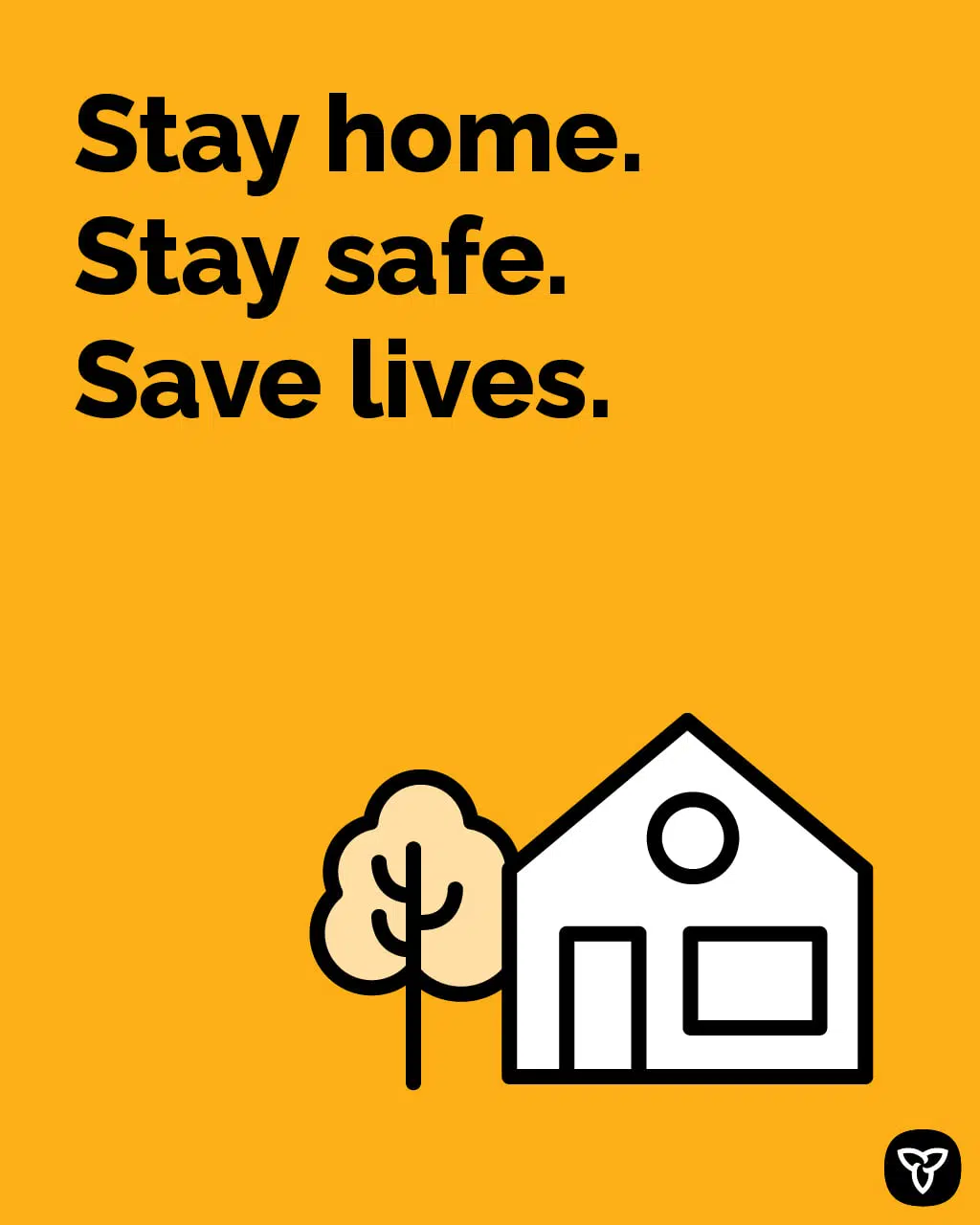
The Stay-at-Home order requires that every individual shall remain in their place of residence at all times unless leaving is necessary for one or more of the following purposes:
Work, School, and Child Care
▪ Working or volunteering where the nature of the work or volunteering requires the individual to leave their residence.
▪ Attending school or a post-secondary institution.
▪ Attending, obtaining or providing child care.
▪ Receiving or providing training or educational services.
Obtaining Goods and Services
▪ Obtaining food, beverages and personal care items.
▪ Obtaining goods or services that are necessary for the health or safety of an individual, including health care services and medications.
▪ Obtaining goods or services, or performing activities, that are necessary for the safe operation, maintenance and sanitation of households, businesses, means of transportation or other places.
▪ Purchasing or picking up goods through an alternative method of sale, such as curbside pickup, from a business or place that is permitted to provide curbside pickup under the Stage 1 Order.
▪ Attending an appointment at a business or place that is permitted to be open by appointment under the Stage 1 Order.
▪ Obtaining services from a financial institution or cheque cashing service.
▪ Obtaining government services, social services and supports, mental health support services or addictions support services.
Assisting Others
▪ Delivering goods or providing care or other support or assistance to an individual who requires support or assistance, or receiving such support or assistance, including,
• providing care for an individual in a congregate care setting, and
• accompanying an individual who requires assistance leaving their residence for any purpose permitted under this Order.
▪ Taking a child to the child’s parent or guardian or to the parent or guardian’s residence.
▪ Taking a member of the individual’s household to any place the member of the household is permitted to go under this Order.
Health, Safety, and Legal Purposes
▪ Doing anything that is necessary to respond to or avoid an imminent risk to the health or safety of an individual, including,
• protecting oneself or others from domestic violence,
• leaving or assisting someone in leaving unsafe living conditions, and
• seeking emergency assistance.
▪ Exercising, including,
▪ walking or moving around outdoors using an assistive mobility device or using an outdoor recreational amenity that is permitted to be open under the Stage 1 Order.
▪ Attending a place as required by law or in relation to the administration of justice.
▪ Exercising an Aboriginal or treaty right as recognized and affirmed by section 35 of the Constitution Act, 1982.
Multiple Residences and Moving
▪ Travelling to another residence of the individual if, the individual intends to be at the residence for less than 24 hours and is attending for one of the purposes set out in this order; or the individual intends to reside at the residence for at least 14 days.
▪ Travelling between the homes of parents, guardians or caregivers, if the individual is under their care.
▪ Making arrangements to purchase or sell a residence or to begin or end a residential lease.
▪ Moving residences.
Travel
▪ Travelling to an airport, bus station or train station for the purpose of travelling to a destination that is outside of the Province.
Gatherings
▪ Attending a gathering for the purpose of a wedding, a funeral or a religious service, rite or ceremony that is permitted under the Stage 1 Order or making necessary arrangements for the purpose of such a gathering.
▪ If the individual lives alone, gathering with the members of a single household.
Animals
▪ Obtaining goods or services that are necessary for the health or safety of an animal, including obtaining veterinary services.
▪ Obtaining animal food or supplies.
▪ Doing anything that is necessary to respond to or avoid an imminent risk to the health or safety of an animal, including protecting an animal from abuse.
▪ Walking or otherwise exercising an animal.
Further, this Order:
▪ Does not apply to individuals who are homeless.
▪ Authorizes an individual to return to their residence from a place, if it allows them to leave their residence to go to that place.
▪ Does not prevent an individual from accessing outdoor parts of their place of residence, such as a backyard or accessing indoor or outdoor common areas of the communal residences in which they reside that are open, including lobbies.
If you are uncertain as to whether something is essential, it probably isn’t.
